Frossard, La cause des esclaves negres et habitans de la Guinee, 1789.
- Regular price
- €9.500,00 EUR
- Regular price
-
- Sale price
- €9.500,00 EUR
- Unit price
- per
Benjamin-Sigismond Frossard (1754-1830).
La cause des esclaves negres et habitans de la Guinee, portee au tribunal de la justice, de la religion, de la politique; ou histoire de la traite & de l'esclavage des negres, preuves de leur illegitimite, moyens de les abolir sans nuire ni aux colonies ni aux colons.
Lyon, De l’imprimerie d’ Aimé de la Roche, imprimeur de la Société Royale d’ Agriculture, 1789.
2 volumes. 8°. [2], V, [1], 367; [2], vii, [1], 403, [5] pp. = complete with the approbation and privilege at the end.
With an engraved frontispiece and woodcut head- & tailpieces.
Contemporary marbled calf with gold-tooled spine, raised bands, blue title shield, speckled edges, marbled endpapers.
An excellent copy of the first edition of one of the earliest major abolitionist writings in French of the 18th century, adorned with a “spirited” (Sabin) allegorical frontispiece engraved by Charles Boily after Pierre Rouvier. The frontispiece depicts the French monarchy liberating chained enslaved black people prostrated at her feet, with the motto “Soyez Libres et Citoyens” (Be Free and Citizens) below.
The book is divided into two volumes. The first volume delves into the grim reality of trafficking and the trade of enslaved African people, providing an extensive and unrelenting practical description of slavery, beginning with a portrayal of the African lands and people from which the enslaved were taken, followed by a step for step explanation of the method of transportation to America and selling once there, the places in the Americas where they were taken to work and how they lived there. The second volume delves into the moral foundations of slavery and fervently advocates for its abolition. Frossard vehemently denounces the notion of a barbaric Africa and underscores the irreconcilability of Christian religion with the slave trade. He offers valuable, detailed descriptions of the transportation of enslaved African people to America. Additionally, he advocates for a new colonization of Africa, advocating for the establishment of free settlements based on voluntary labor as an alternative to the trafficking and deportation of human beings. It's evident that Frossard's viewpoints are deeply rooted in a sense of white supremacy and burden.
Benjamin-Sigismond Frossard, a pastor of Swiss origin based in Lyon, embarked on a journey to England in 1784-1785. There, he encountered early abolitionists and witnessed firsthand the conditions aboard ships involved in the trading of enslaved people. This experience proved pivotal in shaping his commitment to the anti-slavery cause. Upon his return to France, he penned his magnum opus, offered here: La cause des esclaves nègres et des habitants de la Guinée (The Cause of the Black Slaves and the Inhabitants of Guinea), published in Lyon in 1789. Frossard's work earned him membership in the Société des amis des Noirs (Society of Friends of Black People), a highly esteemed affiliation within the abolitionist movement. He emerged as one of its most prominent figures. On December 12, 1792, he presented to the Convention his Address on the Abolition of the Slave Trade, encapsulating the main arguments of his book.
Condition: minor wear to binding and minor occasional browning to pages, otherwise in exceptional condition.
Literature: Gay 2813; Goldsmith 14008; Monglond I 229; Sabin 26013.
Olivier Grenouilleau, “Le Discours d’un Pasteur Abolitionniste En Son Siècle: ‘La Cause Des Esclaves Nègres’ (1789) de Benjamin-Sigismond Frossard.” In: Revue d’histoire Du Protestantisme, vol. 3, no. 3/4, 2018, pp. 395–410.
Robert Blanc, Un pasteur du temps des Lumières: Benjamin-Sigismond Frossard (1754-1830). Paris, Honoré Champion, 2000.
Couldn't load pickup availability
Share
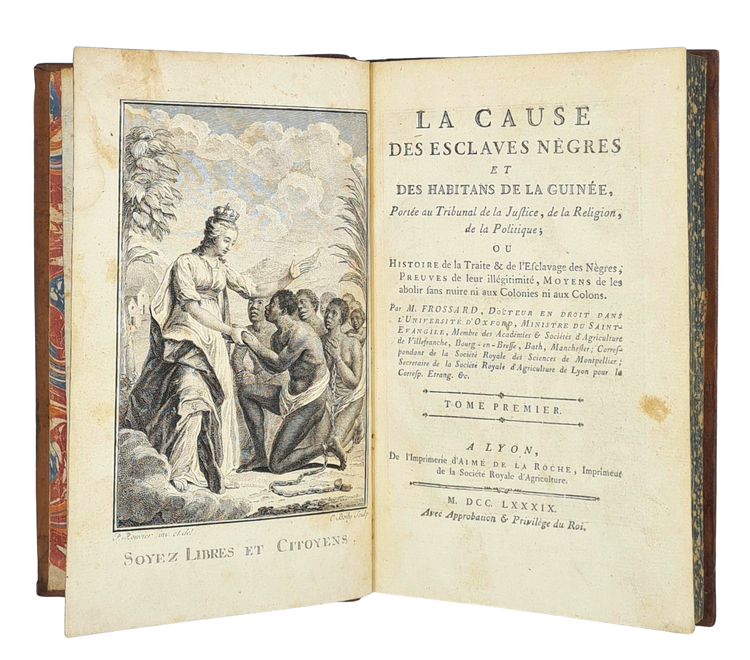
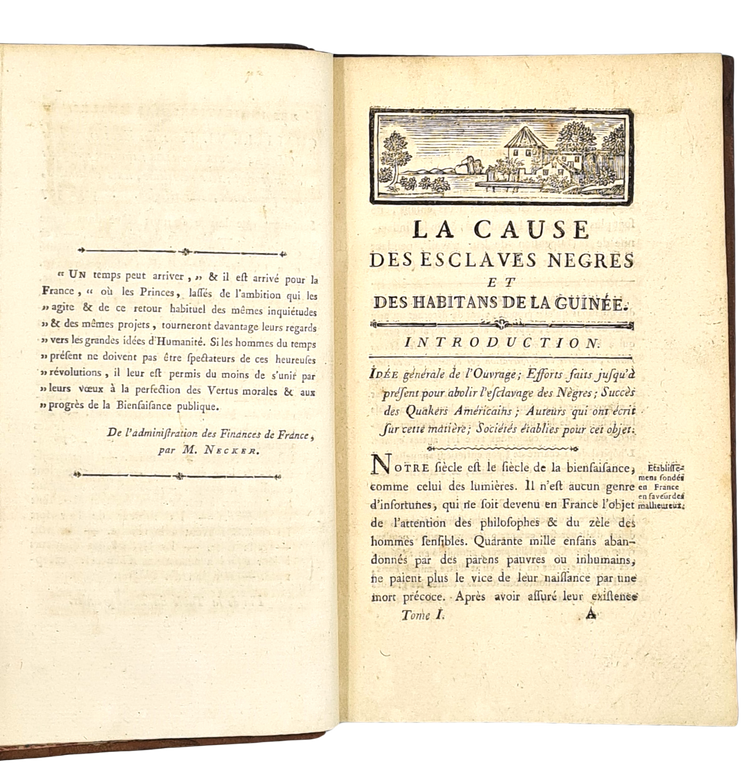
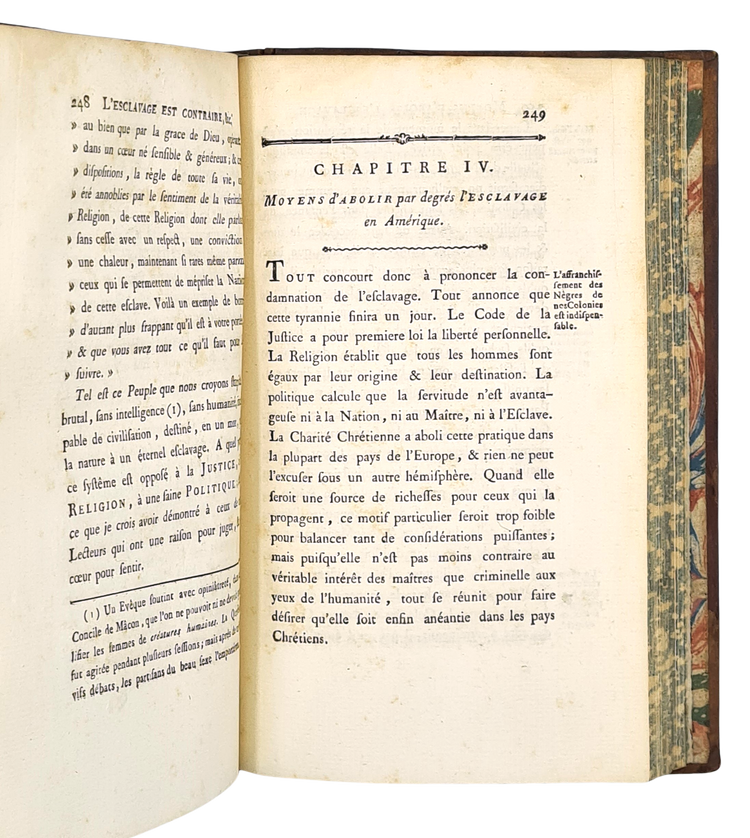
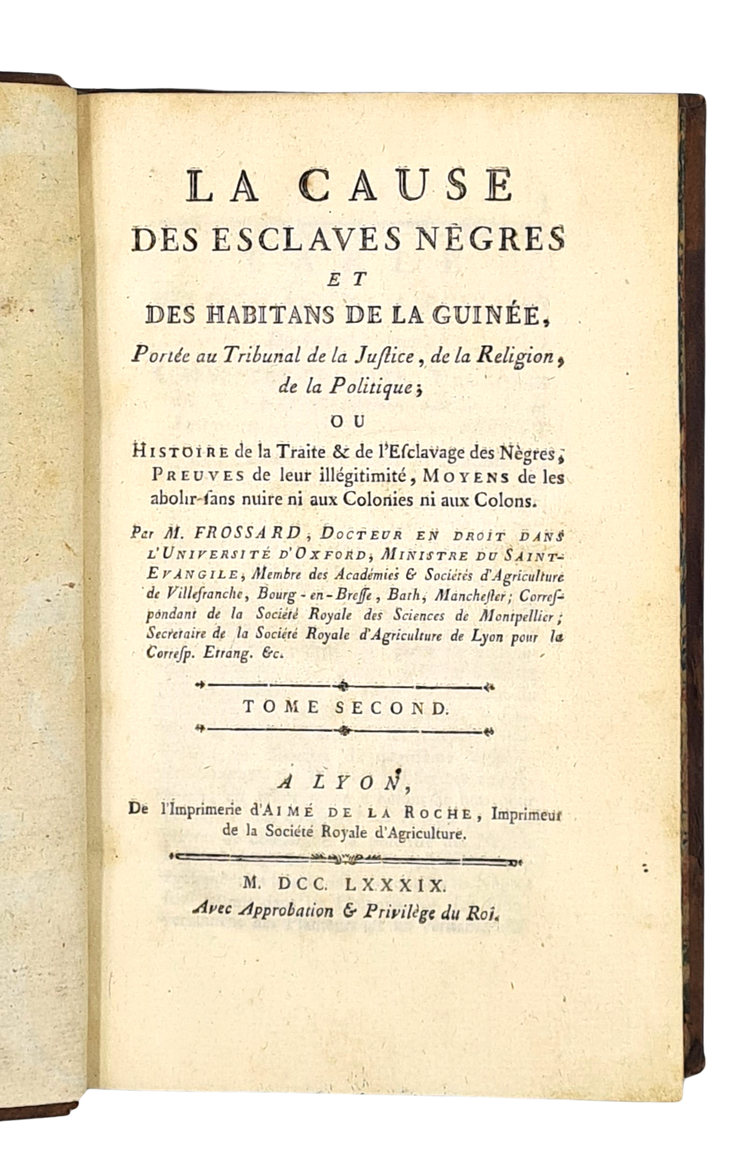

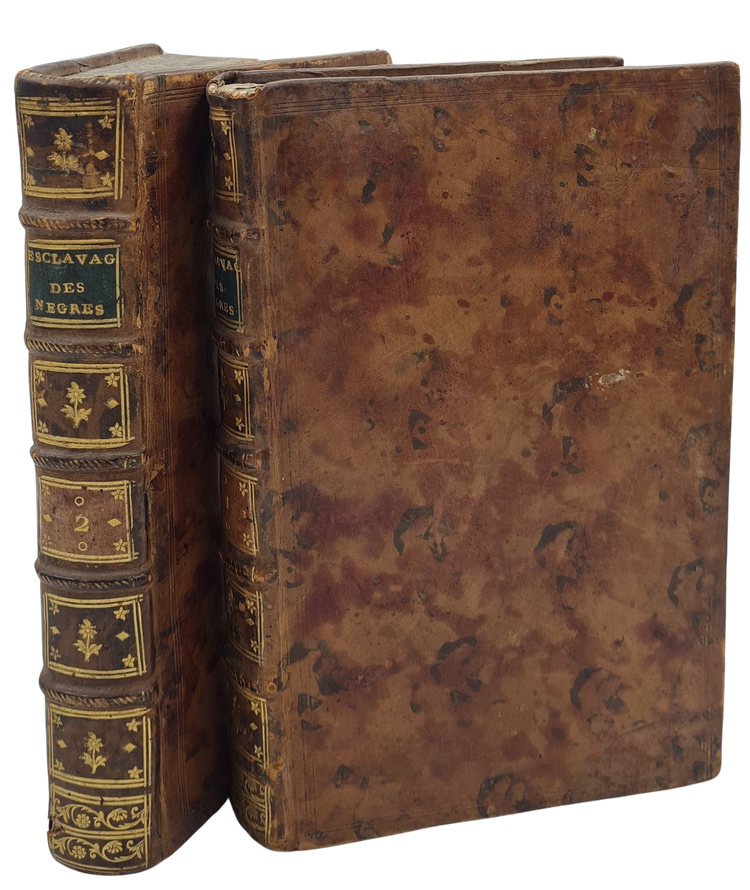
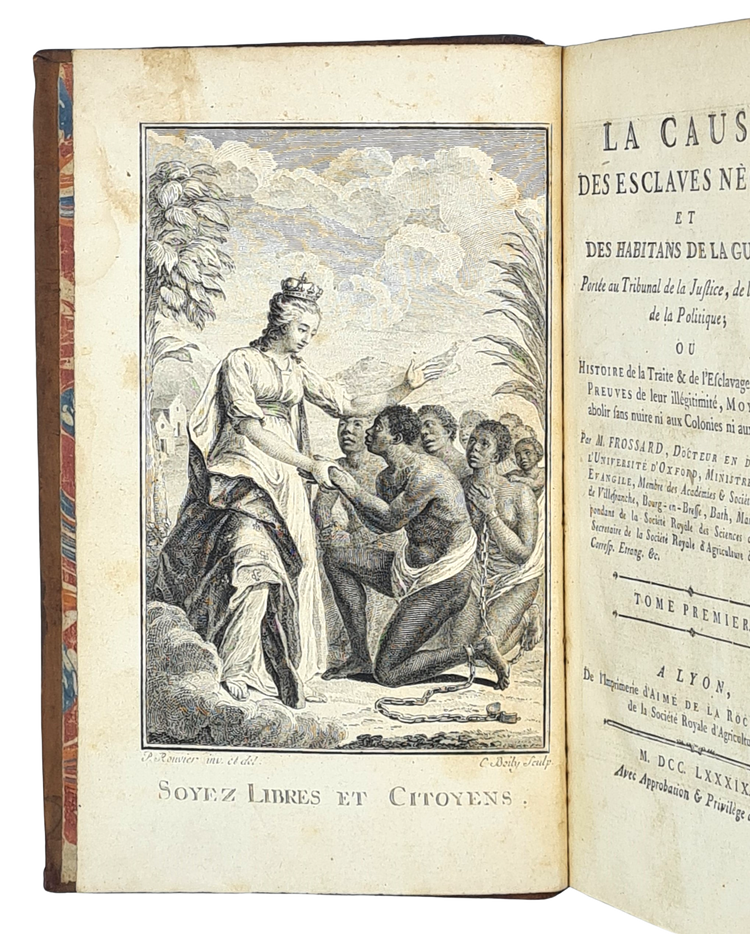
Contact
Email: hugo@artemrarebooks.com
Phone: +31651042297
Visit us on appointment at:
Former US Embassy
Lange Voorhout 102
2514EJ
The Hague (The Netherlands)
Shipping address:
Nannie van Wehlstraat 51
2548MN
The Hague
The Netherlands







